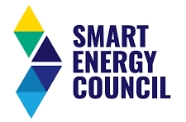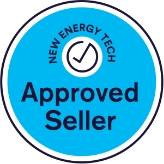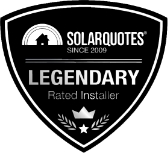
The two most common questions I get asked by customers on a daily basis are:
1) How much money will solar save me?
2) Which electricity retailer is the best/pays the highest feed-in tariff for solar?
.
1) How much money will solar save me?
The answer to question 1 is simple: You’re the master of your own destiny!
As Clean Energy Council approved solar retailers, we will guarantee you the performance of the system…the savings come down to you. The more habits you change to run your appliances during the day, the more money you will save.
Common mistakes:
“Put the air con on, we’ve got solar …It’s ok, we’re making our own power, use the dryer.”
- People often unknowingly increase their electricity usage when they get solar! This often results in seeing only little savings on your electricity bills which can leave a sour taste in your mouth after investing thousands of dollars on a quality system. It’s fine if you want to increase your usage when you have solar installed, but just know that you would have a much higher electricity bill if you didn’t have solar.
- The solar production is the best way to monitor your solar system’s ‘health’; the power bill is not a good indicator of the system’s performance because it doesn’t take into account how much you might increase your usage, without even realizing.
How to save more:
- If you can, run appliances you would normally run at night, during the day. Eg. put the dishwasher on after brekky in the morning so it’s running for free from your solar instead of putting it on after dinner and having to pay for the power from the grid.
- Keep in mind – you’re only going to pay for the power you buy at night. If you can minimize that (we don’t expect you to change your whole lifestyle), you’ll see a better saving.
2) Which Electricity Retailer Pays the highest feed-in tariff for solar?
I’m afraid it’s not as simple as that. You are asking the wrong question! You should be asking, “which retailer is best for solar?” The answer to this is a bit more complicated. We are not affiliated with any electricity retailers (thank goodness!) but we want to see you making the best savings possible – so here is some advice:
- Do not change electricity companies before your solar is installed! Things can get lost in the paper shuffle and this can make everyone’s life a nightmare. My advice is to wait until you receive your first full quarter bill after your solar has been installed and we can assess retailer selection at that point.
- Don’t always be tempted by just a high feed-in tariff. Companies like Click Energy are offering up to 11c/ kWh for your excess solar generated. This is a great price considering most retailers only pay 6c/kWh. But if you look closely at their daily supply charge and tariff 11/peak usage rates, on this plan you could actually end up paying a higher bill. I recently did some calculations on one of my customer’s bills who had solar installed around 3 years ago and is with Click on the higher feed-in tariff. This particular customer would actually have been $15 better off, per quarter, with a retailer like AGL, Energy Australia, Origin who only pay 6c/kWh because those retailers’ supply charges were 24c/day cheaper and T11 rates were 4c/kWh less!
- The age old saying – if it sounds too good to be true, it probably is. Some solar companies may offer you to sign with electricity retailers they are affiliated with (eg Diamond energy, Sanctuary Energy) and you will receive a higher feed-in tariff – up to 15-20c/kWh. While they are fantastic feed in rates, there are usually conditions attached to them. From previous experience, I know some electricity retailers will charge the affiliated solar company a ‘commission’ of sorts because they are able to offer their customers an exclusively higher feed-in tariff. This ‘commission’ is generally passed onto the customer in the form of having to pay a higher upfront price for their solar system and there are generally limits to how much power you get to sell back to them for the higher rate. Eg. Some solar companies may offer you to sign up with Diamond energy who will pay you 15c/kWh for your excess power for the first 50kWh/week and then it drops down to 8c/kwh thereafter. Additionally, these rates are usually only applicable for the first 2 years of being with that retailer.
How to save even more with solar:
- Use your power wisely. If you are smart about your power usage habits, you won’t be selling a huge amount of excess back to the grid – so a 10c/kWh feed-in tariff won’t actually benefit you much more than a 6c/kWh feed in tariff.
- Don’t increase your usage for the sake of using your solar power!! This will result in only seeing a small decrease in your power bill. Even though you may be selling your power back to your retailer for 6c/kWh, it is still helping to offset your daily supply charge and night time consumption.
- Keep your electricity company honest and learn to understand your bill. My customers often email me their electricity bill so I can help them interpret it. It’s in our best interest to make sure they are getting the best results possible. I recently had a customer email me their bill from Origin, who had sneakily changed them from “Domestic Supply” to “General Supply” since they had solar installed. This meant they were being charged the rates for businesses and their supply charge was 24c/day more expensive!! Origin are “looking into it” and aren’t sure “how that could have happened”!
- Do the sums. Your first full quarter bill after solar will show you exactly how much power you have bought from the grid and exactly how much you have sold back. With these numbers, you can recalculate what your power bill would be if you were to change to a different electricity retailer who offers a higher feed-in tariff (and possibly higher prices, too). This is something I do as a courtesy to my customers because it’s my job to know which retailer is offering what prices and I present all the options available. Whether it be – stick with your current retailer, move sideways or dump them altogether. Ultimately, you decide who you want to receive your bills from.
- Negotiate a discount with your current retailer – if you don’t ask, they won’t give you one! Unfortunately, people aren’t usually rewarded for loyalty these days so get on the phone and ask for a discount – it could save you quite a lot of money if you use a lot of power. It doesn’t cost a cent to ask the question and you’ve got nothing to lose.
- You’re not locked in – it is illegal in Queensland for electricity retailers to charge you an early termination fee to exit a contract. A lot of power companies will put you on a 12 or 24-month contract but that only applies to the amount of time you’ll receive an agreed discount. Most people aren’t aware that they don’t have to pay any exit fees if they want to change power companies – if you’re not happy with one, you can always change to another – without penalty.
So in summary, don’t worry about changing electricity retailers too hastily when you decide to stop donating money to your power company and go solar. That can be better tailored once we get some data on your usage habits after the installation. If you do want some amazing independent advice that will be based on you seeing the best savings possible, request a quote and install with MC Electrical – We Know Solar!
Nicole









7 Responses
It’s a jungle out there John. I wish I had a simple answer. I’m not sure who you can trust. I’m personally with Energy Australia because when I did the figures we worked out they were the best for our usage and feed in. We have a spreadsheet that we update regularly. It’s not perfect because it’s a moving target. But it points in the right direction. I have been meaning to get that into an online tool, but that’s for South East Qld – that wouldn’t help you!
Hi, I need some clarification on all the comments on Energy companies. It seems that people who provide reviews of the various providers have all got different agendas. For instance, Alinta energy has received everything from virtually zero approval right up to top of the line marks. My question is, “Who do I believe”? John
Hi Mary, if you are still on the old feed in tariff (44cents or more) in Qld, DON’T switch retailers! if you do you will lose your 44 cent feed in tariff! The “44cent feed in tariff” was too generous, and rightly, the Qld government is doing anything they can to make people lose the over the top offer.
Hi Nicole/Mark I’ve been with Click since around 2013 (was part of the One Big Switch group) and have a 3kw solar system (installed in 2010). Was constantly in credit on my bill until around 18 months ago due to electricity prices escalating. I’m considering switching over to RACQ Simply Energy as their daily supply charge rate is almost 50 cents cheaper than Click. Even with Click’s new Shine Extra that pays 16 cents on top of Government Feed in Tariff (44c), taking bonus tariff to 60c, from my calculations Simply Energy would still be much cheaper overall despite them not offering anything extra on top of FiT 44 c. It’s all becoming quite confusing & complicated these days with electricity providers. I’m not willing to change over until I’m sure Simply Energy would be a good provider to go with. Their deal sounds somewhat too good to be true. Your thoughts on this? Any advice would be greatly appreciated. Thank you.
Great topic and well researched Nicole. I will be sending you my bill for analysis and take your advice.I have to get in touch with Ryan again as our Envoy is missing and hence unsure as to how much electricity is being generated. Thank you again. Chris.
Hi Steve. Off peak and peak is commonly misunderstood. In Qld, off-peak (t31 or t33) appliances need to be on dedicated circuits. Usually best suited to hot water, pool (occasionally an air-con or clothes dryer). These appliances will only have power for 8 (t31) or 18 (t33) hours a day. You cannot run an off-peak appliance with your solar. You cannot charge a battery from off-peak power. You cannot run a standard power point or light on an off peak tariff. So in short, the answer is no – at least if you live in Qld.
Hi Nicole/Mark, Is it possible that if I was to install a hybrid solar system with the battery/s, that I could connect this system to only the off peak meter so I can save on the cost of importing electricity from the grid since potentially the batteries could take the house load into the evening and by the time they run out the off peak would have kicked in?